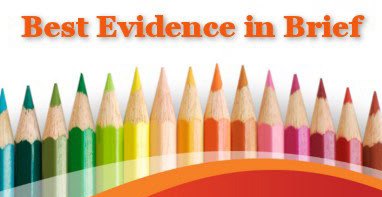Producing and making available evidence of effective educational programs is not enough to make it used in practice. Knowledge mobilization should be one of the key research areas to foster greater equity and responsiveness to educators’ needs. A study by Kaitlyn Fitzgerald and Beth Tipton focused on the communication of statistical data by studying how those data should be reported in order to facilitate decision-making based on evidence at school and policy levels.
The authors proposed three main considerations. First, using the expression “the message sent may not be the message received,” they highlight that researchers set norms often not understood by practitioners. To overcome this issue, participatory research methods should be used to set norms.
Second, practitioners and decision-makers are different from each other: they may work in large or small districts with diverse resources and educational backgrounds. The contexts where they work vary considerably based on the community they serve. To overcome this issue, a deep understanding of a community’s needs is necessary.

